Saving for Retirement in a Roth IRA

Financial services are littered with jargon, and it isn’t always common sense. One area of confusion has to do with ROTH.
History of Roth
The term “Roth” is derived from Senator William V. Roth Jr. who championed tax cuts and sponsored legislation in 1997 that created a Roth IRA. When someone says “Roth IRA” or “Roth 401k”, it is referring back to Senator Roth and the special tax treatment of this type of account.
What is a Roth?
It’s pretty simple. Instead of a “traditional IRA” where you may make tax deductible contributions, a Roth IRA allows you to pay your taxes today, then take your money out in retirement tax-free if you qualify. The reverse of the traditional approach. The money that goes into a Roth has already been taxed, it can earn interest and capital gains which are not taxed as they occur, then when you take qualified distributions, you get all the original contributions plus all the interest and gains out without any income or capital gain tax, no matter how big the account is. You can learn more on the IRS website: IRS Explanation.
- What are the limits?
There are limits on what qualifies as compensation and how much you can contribute. You can read more about those here: Contribution Limits. Because of these limits, many people wait until they do their taxes to make contributions.
- Roth Investments
A common question we get is “what can I invest in a Roth”? The answer is basically anything that you could invest in any other type of account. A Roth IRA is a type of account, but the actual investments you own inside that account is almost unlimited. Our financial planners would look at the types of investments you already own, their tax characteristics, and determine if they should be owned in a Roth or some other type of account. Of note, cryptocurrencies can be owned in a Roth IRA, which would make their tax reporting much easier for you.
- Who should open a Roth IRA?
Roth IRAs are appropriate for almost everyone. The only people who may benefit from a traditional IRA are those that really need the tax deduction. Those people are usually in their peak earnings years and are in the higher tax brackets. They may benefit from the tax deduction. But everyone else should consider a Roth.
Benefits of a Roth IRA
- Roth IRAs allow for tax free growth and tax free withdrawals if you follow the IRS rules.
- Time is your friend. Prudent investments in your Roth can earn compound growth over the decades. Compounding is the 8th wonder of the world, and you don’t have to share it with the IRS if it is earned in a Roth IRA.
For example, if a 30 year old couple invests $12,000 ($6k each) per year for 30 years earning 8% rate of return per year, they would have over $1.3 million at age 60 available tax free! If they had started at age 20, it would be over $3 million tax free.
- Future Tax Rates
Many people think their tax rates will be lower in retirement. That might be true, but income taxes are historically low right now, and taxes may be higher during your retirement years even if your income is less. And remember, you may have taxable pension income or traditional IRA withdrawals that push you up into higher tax brackets, and many retirees have less tax deductions. At the very least, it makes sense for tax diversification purposes to have some money in Roth.
- No Required Minimum Distributions
Unlike traditional IRAs, your Roth IRA is not subject to Required Minimum Distributions. You are not forced to take money out. Roth IRAs seem like a tax loophole, and many fear it will be clawed back by the IRS. I don’t see any scenario where that happens, but there is some discussion in Congress to pass a law that would require tax payers with more than $10 million in their Roth to take the excess back out. Inherited Roth IRAs have a different set of rules.
Roth Problems
- Common problems we see include a lack of or improper completion of Form 8606.
- Not tracking your Roth basis.
- Not considering back door Roth contributions.
- Making contributions that you were not qualified to make.
- Taking money out of your Roth that interrupts compounding.
- Telling your tax preparer that you made IRA contributions without specifying Roth.
- Not completing conversions correctly or not having a plan to convert non-deductible IRA contributions to Roth.
- Not considering the pro-rata rule for IRA conversions.
- Not considering Medicare B premium increases when converting.
- Not documenting conversions or misunderstanding the 1099’s taxable amount box.
Perhaps the most common issue is not opening a Roth IRA as soon as possible and at least starting some contributions. A good financial planner can identify Roth opportunities, identify and correct problems, and work with your tax professional to take advantage of a Roth IRA.
Extra Credit
In addition to Roth IRAs, there are Roth 401ks, Roth 403bs, Roth Conversions, back-door Roths, mega back door Roths, etc. Basically, you need to know that there are different ways to contribute to Roth accounts that allow for higher contributions, and you can strategize around their tax advantages to maximize the benefits. These Roth types and strategies add to the financial jargon that Skyline Advisors can simplify and integrate in a comprehensive financial plan that considers your income taxes.
Mark Wallace CFP® AIF® CRPC®
Financial Planner
All of the above is subject to change, as the rules around Roth have evolved over time. You should consult your tax professional or financial advisor for more personalized advice. Tax free withdrawals are only available if you are over age 59 ½ and the Roth is older than 5 years. None of the above should be taken as tax advice and are for general informational purposes only.

